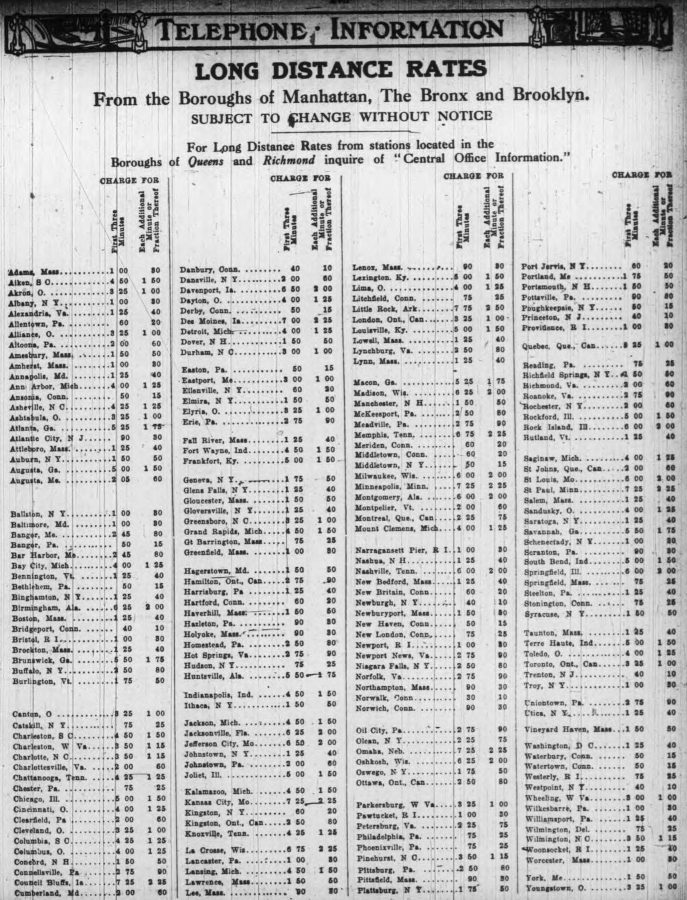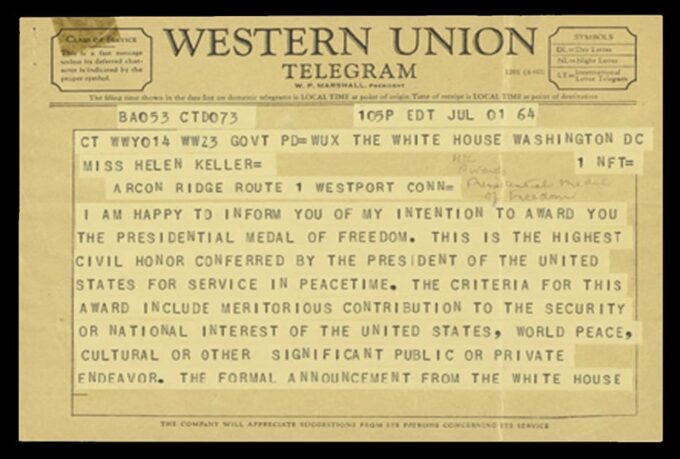Does anybody think about the cost to make a long-distance phone call today? Not really. But in 1910, it was a big deal. Here is a rate card from New York City:

Little Rock, Arkansas, was the most expensive at $7.75 for the first three minutes followed by $2.25 per minute. At the time, blue-collar hourly compensation (wages and benefits) was 18 cents an hour. A five-minute call cost $12.25 and required 68 hours of work. Unskilled workers earned 11 cents an hour. Making this call for them cost 111 hours. It cost blue-collar workers 13.6 hours per call minute while it cost unskilled workers 22.2 hours per call minute. Here are a few sample rates for a five-minute call and the time price for unskilled and blue-collar workers in hours:

The website stuffnobodycaresabout.com notes:
Long distance service was limited with only a few cities west of the Mississippi that you could call from New York. You want to call Houston, Denver, Salt Lake City, Seattle or Los Angeles? You’re out of luck.
The only way to communicate with many places would be to send a telegram.
Telegram rates varied by distance sent and had day and night rates. For a typical telegram you paid a flat rate for the first ten words and were charged a per word rate for each additional word. Address and signature were free. For example, to send a telegram from New York to anywhere in Georgia was sixty cents for the first ten words and each additional word was four cents.
With telephone long distance prices being so expensive, you can see why people sent telegrams to communicate something urgent when the recipient was far away.

The next time you call a friend or family member across the country, be happy that you don’t have to work a week to have that five-minute conversation.
Entrepreneurs and innovators transform scarcities into abundances. Bureaucrats and politicians do the opposite.
* Professor Gale L. Pooley teaches U.S. economic history at Utah Tech University. He is an Adjunct Scholar at the Cato Institute, a Senior Fellow at the Discovery Institute, and a board member of HumanProgress.org.
Source: Human Progress











